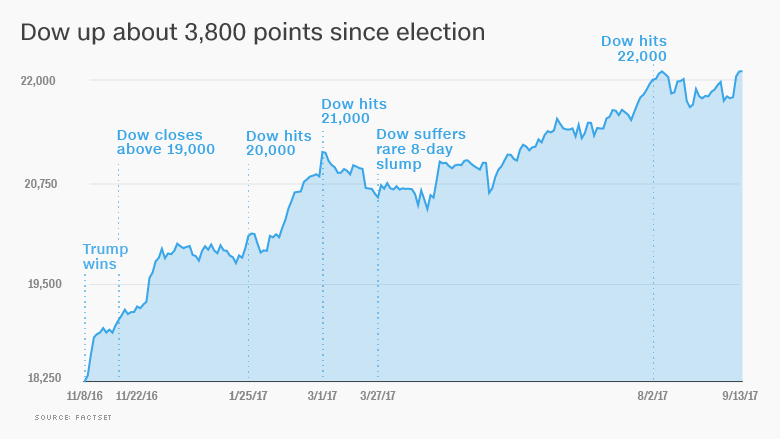The Economic Fallout Of Trump's Trade Actions: A Challenge To US Global Finance

Table of Contents
Increased Tariffs and Retaliatory Measures
Trump's tariff policy, characterized by widespread increases on imported goods, had a profound and multifaceted impact on the US economy. The administration's justification focused on protecting American industries from unfair competition, but the consequences were far-reaching.
Impact on Specific Industries: The agricultural sector, for example, faced significant challenges due to retaliatory tariffs imposed by China, resulting in substantial losses for American farmers. The manufacturing sector, while initially touted as a beneficiary, also experienced disruptions due to increased costs of imported raw materials and parts. The technology sector, reliant on global supply chains, faced complexities and increased costs.
- Increased prices for imported goods: Tariffs directly increased the cost of numerous consumer goods, reducing purchasing power for American households.
- Reduced consumer purchasing power: Higher prices led to decreased consumer spending, impacting overall economic growth.
- Retaliatory tariffs from other countries harming US exports: Trade partners retaliated with their own tariffs, harming US exports and impacting American businesses.
- Disruption of global supply chains: The imposition of tariffs disrupted established global supply chains, leading to production delays and increased uncertainty for businesses.
Damage to International Trade Relationships
Trump's trade actions significantly damaged the US's relationships with key trading partners. The confrontational approach, marked by frequent threats and unilateral actions, eroded trust and fostered a climate of uncertainty.
Strained Alliances: The trade disputes with China, the EU, and Canada, among others, highlighted the breakdown of established trade agreements and the long-term implications for international cooperation. These actions damaged the US's reputation as a reliable and predictable trading partner.
- Erosion of trust among trading partners: The unpredictable nature of Trump's trade policies fostered distrust among allies and created uncertainty in global markets.
- Increased uncertainty in global markets: This uncertainty led to investment hesitancy and volatility in financial markets.
- Damage to the reputation of the US as a reliable trading partner: The aggressive tactics undermined the US's reputation as a reliable partner in international trade.
- Difficulty in negotiating future trade agreements: The damaged relationships made it more difficult to negotiate and maintain mutually beneficial trade agreements.
Uncertainty and Investment Decline
The unpredictability inherent in Trump's trade actions significantly dampened both domestic and foreign investment. Businesses, facing uncertainty regarding future trade policies, became hesitant to commit to long-term investments.
Impact on Business Investment: This uncertainty undermined business confidence, leading to decreased investment in new technologies, equipment, and expansion projects.
- Reduced foreign direct investment (FDI) in the US: Foreign investors, wary of potential policy shifts, diverted investment to more stable markets.
- Decreased business investment due to uncertainty: Businesses postponed expansion plans and reduced capital expenditures due to the uncertain trade environment.
- Negative impact on job creation and economic growth: The decrease in investment stifled job creation and hindered economic growth.
- Increased volatility in financial markets: The uncertainty contributed to increased volatility in stock markets and other financial markets.
The Long-Term Effects on the US Economy
The long-term economic impact of Trump's trade actions continues to unfold. While some sectors might have experienced short-term gains, the overall effect on the US economy is likely to be negative.
Assessing the lasting impact: The lingering effects include persistent trade tensions with major partners, a damaged reputation, and potentially slower economic growth in the long run. Rebuilding trust and fostering stable international trade relationships will require significant effort and a more predictable approach to trade policy.
- Potential for slower economic growth: The combination of reduced investment, higher prices, and disrupted supply chains could lead to slower long-term economic growth.
- Persistent negative effects on certain industries: Some sectors, particularly those heavily reliant on imports or exports, are likely to experience long-lasting negative effects.
- Lingering trade tensions with other countries: Resolving the trade disputes created by Trump's actions will be a long and complex process.
- Need for long-term strategies to rebuild trade relationships: A concerted effort is needed to rebuild trust and foster stronger, more stable relationships with key trading partners.
Conclusion
Trump's trade actions had a demonstrably negative impact on the US economy, challenging US global finance through increased tariffs, retaliatory measures, and damage to international trade relationships. The resulting uncertainty significantly decreased investment, hindered economic growth, and created lasting negative consequences for specific industries. Understanding the complexities of international trade and the long-term effects of protectionist policies is crucial for navigating future economic challenges. How can the US rebuild its global economic standing after the challenges presented by Trump's trade actions, and what lessons can be learned to prevent similar situations in the future? Further research into these questions is essential to ensure the long-term health and stability of the US economy.

Featured Posts
-
 Hollywood At A Standstill The Combined Actors And Writers Strike
Apr 22, 2025
Hollywood At A Standstill The Combined Actors And Writers Strike
Apr 22, 2025 -
 Navigating The China Market The Struggles Of Bmw Porsche And Other Automakers
Apr 22, 2025
Navigating The China Market The Struggles Of Bmw Porsche And Other Automakers
Apr 22, 2025 -
 Razer Blade 16 2025 Review Ultra Settings On A Thin Laptop High Price
Apr 22, 2025
Razer Blade 16 2025 Review Ultra Settings On A Thin Laptop High Price
Apr 22, 2025 -
 Trumps Economic Agenda Who Bears The Cost
Apr 22, 2025
Trumps Economic Agenda Who Bears The Cost
Apr 22, 2025 -
 Anchor Brewing Company Closes After 127 Years The End Of An Era
Apr 22, 2025
Anchor Brewing Company Closes After 127 Years The End Of An Era
Apr 22, 2025
